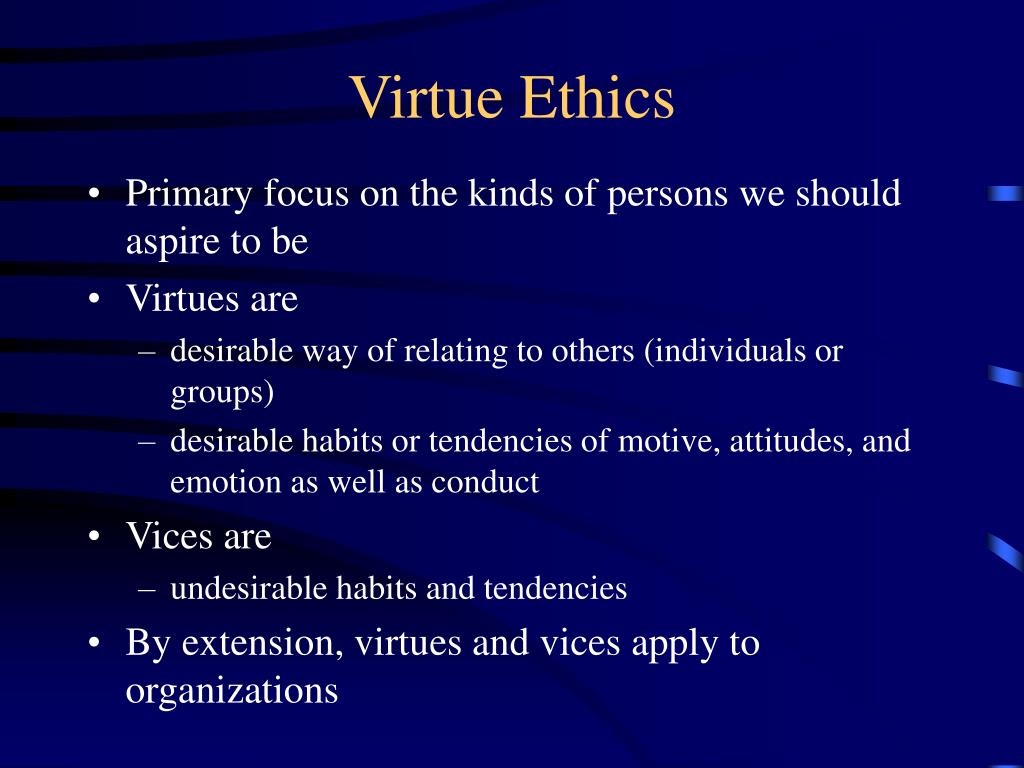
Moral responsibility for an action may be partly determined by whether the action is voluntary or involuntary. Thus, the concept of moral responsibility implies that an individual has some freedom to choose his or her own actions.
Moral virtues and vices list how to#
It may also be difficult for an individual to become unselfish, if he or she has acquired the habit of acting selfishly.Ī morally virtuous action requires an individual to be able to choose how to respond to his or her own thoughts and feelings. For example, it may be difficult for an individual to become tactful, if he or she has not acquired the habit of acting tactfully. Aristotle notes that it may be difficult for an individual to become virtuous if he or she has not acquired the habit of acting virtuously. An individual becomes truthful by acting truthfully, or becomes unselfish by acting unselfishly. The virtuous individual may also act virtuously because he or she believes that virtuous actions are intrinsically good.Īristotle distinguishes between two kinds of virtue: moral virtue and intellectual virtue Aristotle says that moral virtues are not innate, but that they are acquired by developing the habit of exercising them. The virtuous individual may act virtuously because virtuous actions make him or her happy, and/or because virtuous actions make others happy. However, Aristotle explains that the virtuous individual, by nature, enjoys acting virtuously. If the virtuous individual merely possesses virtue, but does not practice virtue, then this quality is not revealed by virtuous action.

If virtue is seen as the 'good,' then the question arises as to whether or not the quality of virtue is the same as the practice of virtue. If goodness is seen as pleasure or happiness, then actions which are performed for the sake of honor, benevolence, justice, or other virtues may be judged as good because they bring pleasure and happiness. Thus, there may be some actions which are good in themselves, and other actions which are good because they are performed for the purpose of something other than themselves which is good.Īn individual may choose to perform an action because the action is good in itself, and/or because the action will make him or her happy. The question arises as to whether there is a single Idea of 'good' which determines the moral quality of an action, or whether there are many Ideas of 'good' which are independent in determining the moral quality of an action.

But Aristotle simply defines the 'good' as that at which every action is aimed. Various people may define goodness as happiness, pleasure, honor, wealth, power, knowledge, wisdom, or virtue. The question is therefore how the term 'good' is to be defined. Book I discusses how good is to be defined, Books II-V discuss the moral virtues, Book VI discusses intellectual virtue, Book VII describes moral continence and incontinence, Books VIII-IX describe the nature of friendship, and Book X discusses how pleasure and happiness are to be defined.Īccording to Aristotle, the purpose of every human action is to achieve something which is good.

The Nicomachean Ethics is divided into ten books. The title of the Nicomachean Ethics may refer to Aristotle’s son (who was named Nichomachus, after Aristotle's father), but it is unknown whether the work was dedicated to Nichomachus, or whether the work was later edited by Nichomachus after Aristotle’s death. The Nicomachean Ethics is the most comprehensive of the three works, and is regarded as the definitive statement of Aristotle’s ethical views. The Eudemian Ethics may also have been compiled from his lectures and later edited by Eudemus (a student of Aristotle’s at the Lyceum).

The Magna Moralia may not actually have been written by Aristotle, but may have been compiled from his lectures and written by one of his students after his death. Aristotle’s ethical writings include the Nicomachean Ethics, Eudemian Ethics, and Magna Moralia.


 0 kommentar(er)
0 kommentar(er)
